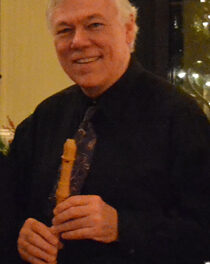An opera was presented in the auditorium on the third floor of the NC legislative building. Bet you didn’t know there was an auditorium there, aside from the two chambers wherein state business is transacted. We didn’t either, so we had to add the address to the list of venues before we could post the event in the calendar.
It seats 250. It has a sort of clunky upright piano and a shallow stage. The room is wider than it is deep. The acoustics are not bad, although the HVAC system is noisier than it ought to be and tended to intrude during quieter passages.
An opera in the legislative building. That was a first. Maybe a last, too.
The crowd was so-so. But then, it was a somewhat wet Thursday afternoon in downtown Raleigh, where parking is at a premium. And most of the publicity had been on the political instead of the arts pages – because the opera was The Body Politic, and its subject is a transgender man named Iphis, who happens to be an Afghan. It was composed by Leo Hurley, a product of the UNC School of the Arts. Its libretto is by Charles Osborne, also a UNCSA grad. The work was premiered in Boston by the Juventas New Music Ensemble in early May and was to have gone to New York next but due to HB2 the show was diverted to Raleigh, where on this occasion members of the original cast offered a concert version of roughly two-thirds of the score, laced together by narration provided by the librettist.
The cast consisted of countertenor Rudy Giron, a product of Pepperdine U., as Iphis; soprano Laura Intravia, double cast as the young Iphis and Michael, soprano Kristin Schwecke, of the Fletcher Opera Institute, as Constance; tenor James Wesley Hunter, a product of the U. of Maryland and Boston Conservatory, as Eugene; and mezzo-soprano Lidiya Yankovskaya, the music director and conductor of Juventas, as Roxanna, the mother of Iphis.
The somewhat complex plot, reduced to its essence, centers on a girl in Kabul who, under the Afghan practice of bacha posh, is raised by her mother Roxanna as a boy, in order to help her survive the Taliban. The opera unfolds in a series of scenes alternating in Afghanistan and Chapel Hill a decade or so later, where Iphis was cared for by a foster mother, Constance, alongside her own young son Michael; when we encounter him there, however, Iphis rooms with his friend Eugene, a nurse who moonlights as a drag queen. Various examples of understanding and intolerance inform the drama as it unfolds, and along the way there are reflections of actual history, including the US invasion of Afghanistan and the 2006 incident in Chapel Hill involving the SUV driven into The Pit. In the denouement, Eugene urges his friend to move with him to New York, but the opera instead ends with Roxanna helping forge a new Afghanistan, as a senator, and the fully-transitioned Iphis returning home – as the Taliban resurge.
The vocalists were all strong, individually, projecting the words and their various emotions, too, very well and working together in duets and larger ensembles with great skill. Even with piano accompaniment, admirably provided by Julia Scott Carey, the score is highly effective, conveying a sense of traditional Afghan music in the scenes set there and more upbeat and idiomatic tunes in the American portions. There are some genuine arias in which the action was suspended while reflective passages brought the personalities of the various characters to vivid life. The big numbers, too, were quite marvelous, including a quintet of remarkable effectiveness and a quartet for treble voices that was among the afternoon’s most moving numbers. Listeners easily grasped the myriad strands the opera conveys, ranging from personal struggles with identity to hesitation on the acceptance side, all overlaid with the agony of the unending war made personal and direct for the opera’s characters. The end proved more positive and upbeat than one might have anticipated, at the outset. The audience responded with great enthusiasm and appreciation, giving the cast a protracted standing ovation.
It would have been nice to have heard this work in full, rather than the somewhat pruned version that was given – it was said to have been trimmed by about 30 minutes. And it would surely have been more effective with the chamber ensemble that accompanied the premiere, and with sets and costumes – which in turn would surely have enhanced audience awareness of the shifting locations. But it was enough – enough to convey the score’s power and ingenuity and to demonstrate the importance of this new work as an artistic entity and a social one as well.
I was chastised by a then-senior critic years ago for complaining in a review about who had not been present at a concert, so I won’t make that mistake again here, but the auditorium wasn’t full by any means, and it’s unfortunate that more people didn’t attend, including people whose offices are in the same building as the venue where this treatment of The Body Politic unfolded with such power and eloquence. It certainly enhanced my understanding and my appreciation, too, of some of the issues that confront North Carolinians in these trying and difficult times. Let civil dialogue continue. And let’s have another look at this new opera in the very near future, in a complete edition, fully staged.
For more information, see http://www.hurleyandosborne.com/.
To contribute to this ongoing project, see https://www.gofundme.com/transoperaNC.
Here’s the Facebook page: https://www.facebook.com/events/534816993367861/.
And for video and commentary from the N&O, see http://www.newsobserver.com/news/politics-government/article78708602.html.
(Edited 5/21/16 to include name of accompanist.)











